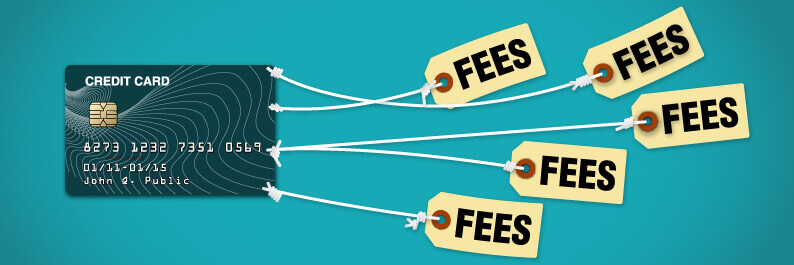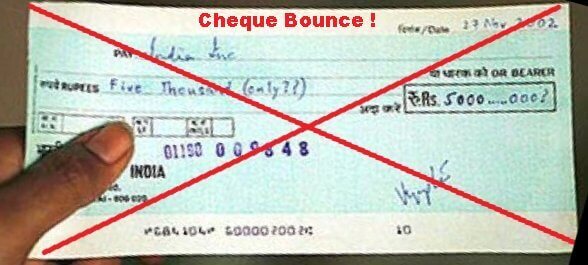The Hidden Fees That Come With Credit Cards You Need To Look Out For
With 223 million credit cards used in the UK last year, it is clearly the most common type of loan available. The average person has a minimum of two credit cards and not only does it delay repayment, it is a safe and easy way to carry money around with you, with additional perks such as a welcome bonuses, air miles and nectar points.
How a Credit Card Works
Consumers and businesses are able to purchase almost anything using a credit card and then repaying at the end of the month when their balance is due.
The amount you can borrow is based on your credit limit and this can be a few hundred or thousands of pounds. It is calculated based on your income and affordability and can increase or decrease according to your requirements.
Provided that you repay your credit card on time every month, and repay exactly what you borrowed, there are no fees that apply. However, if you want to extend repayment and not pay the full amount, you can make a ‘minimum payment’ but this will be charged at the competitive interest rate of your card provider.
However, paying a minimum means that not only will you be charged for the withdrawal but it will also pay on what you owe for the whole of the statement balance – so the debt keeps compounding and means that you will owe more and more.
The card fees you pay are based on your provider and can range from 0% to 30% APR. If you have a good credit score or are new to getting a credit card when you turn 18, you can have a 0% introductory rate for up to 1 year. But if you have a bad credit score, you will have to pay a higher rate of interest to account for the potential risk.
What Are The Extra Credit Card Fees?

Overdraft Fees
You will have a credit limit for your credit card that you can spend each month e.g £4,400. If you want to spend beyond this, you can go into an authorised overdraft for an amount that is agreed with your card provider. The cost of this will vary and can be anywhere from £1 to £30 for every £100 you borrow – suggesting that it is an expensive form of borrowing. Considering that payday loans are £24 per £100 and guarantor loans are around £112 per £100 borrowed.
However, if your provider or bank has not given you an overdraft facility beforehand, you can go over into an ‘unauthorised overdraft.‘ This allows you to borrow money without any permission or subject to affordability checks – so whilst your card provider allows you to do it, they are taking on a lot of risk and the fees can be enormous, going up to as much as £100.
Simply for exceeding your credit limit, you may be charged a one-off fee of £12 by the credit card company you are using.
Late Fees May Apply
Repaying your credit card late may incur late fees depending on the card issuer that you are using. Above all, any missed or late repayments will be reported to the three main credit reference agencies and this will cause your credit rating to fall – making it harder to get access to finance in the future and future rates will be more expensive too.
Withdrawing From Cash Machines
You can use a credit card to draw cash and this can be convenient in certain circumstances such as a night out, holiday or when you are around friends. Or perhaps you have no money in your debit card and are waiting to get paid from work.

However, for the convenience of using your credit card to withdraw from an ATM, you can incur a fee of £5 and you may not be warned about this when you take out the money. In some cases, there may be interest charged on the amount of money that you withdraw and this includes whether the transaction is in the UK or overseas.
The ideal scenario is to use your debit card to make cash withdrawals from a machine because this is typically free of charge.
Paying Cheques and Direct Debits
You can also pay cheques using your credit card details. Perhaps you will want to do this if you are giving a big donation or gift to someone and want to clock the air miles – or maybe you do not have any money in your debit account and need to pay something by cheque. Similar to an ATM, you can be charged a £5 fee for writing a cheque with your credit card details.
If your cheque bounces due to insufficient funds (same with direct debits), you can be charged between £5 to £12 at a time for every missed repayment.

Dormancy Fees
Dormancy fees refer to the charges for not using your credit cards and although this does not cost anyone anything, remarkably, some card companies can charge annual fees of £2 to £20 for not using them.
It is common to go periods without using a credit card such as travelling for a long time, retirement or simply using other cards available to you. What if you took out a store card but moved home and are now nowhere near the John Lewis or Sainsbury that you signed up with?
The important thing is to check the terms and conditions of that card company to see if they charge dormancy fees and cancel any cards that you don’t use.
Fees for using Cards
Several credit cards (especially Amex) charge fees for making the payment by credit card. This is because the vendor usually has to incur fees for taking card payments, so they are passing on this payment to the customer. Examples of this include paying for travel, currency, purchases through Paypal and certain stores. The fee charged can be 2% of the transaction which is a lot in the grand scheme of things or it can be a one-off fee of £2 or £3. The best thing to do in these scenarios is use money or pay via direct debit.
Loading Fees For Abroad Use
If you are using your credit card abroad, your bank can charge you extra based on the exchange rate – and the rates are rarely favourable. Withdrawing money from overseas (as mentioned above) can be even higher as the bank makes a mark-up, knowing that you need to withdraw desperately.
Loading fees often do not appear on credit card statements, so it is worth checking your card agreement’s terms and conditions to see if they sting for these kind of things, otherwise it may be worth looking at different cards that accommodate travelling.



